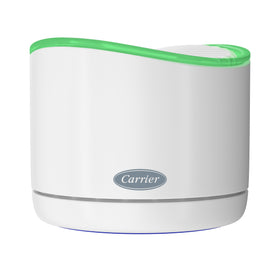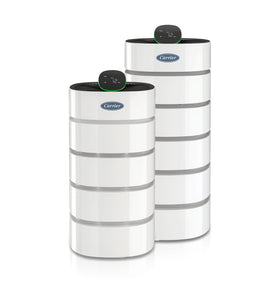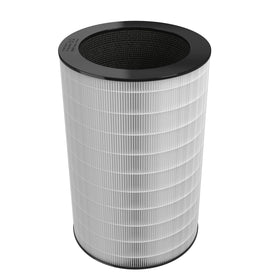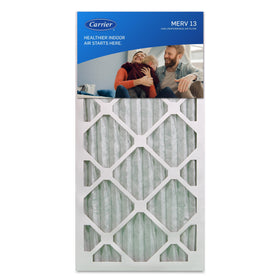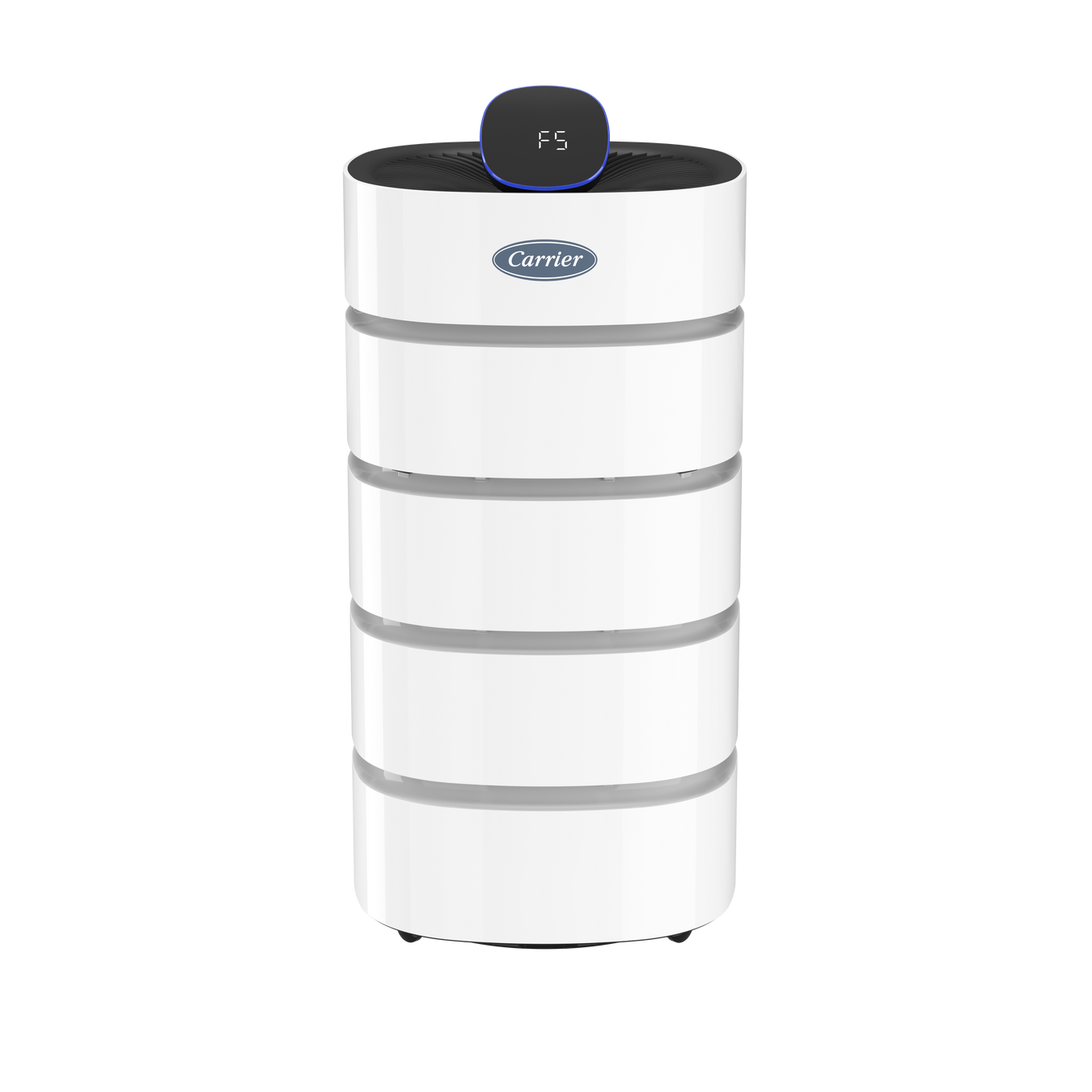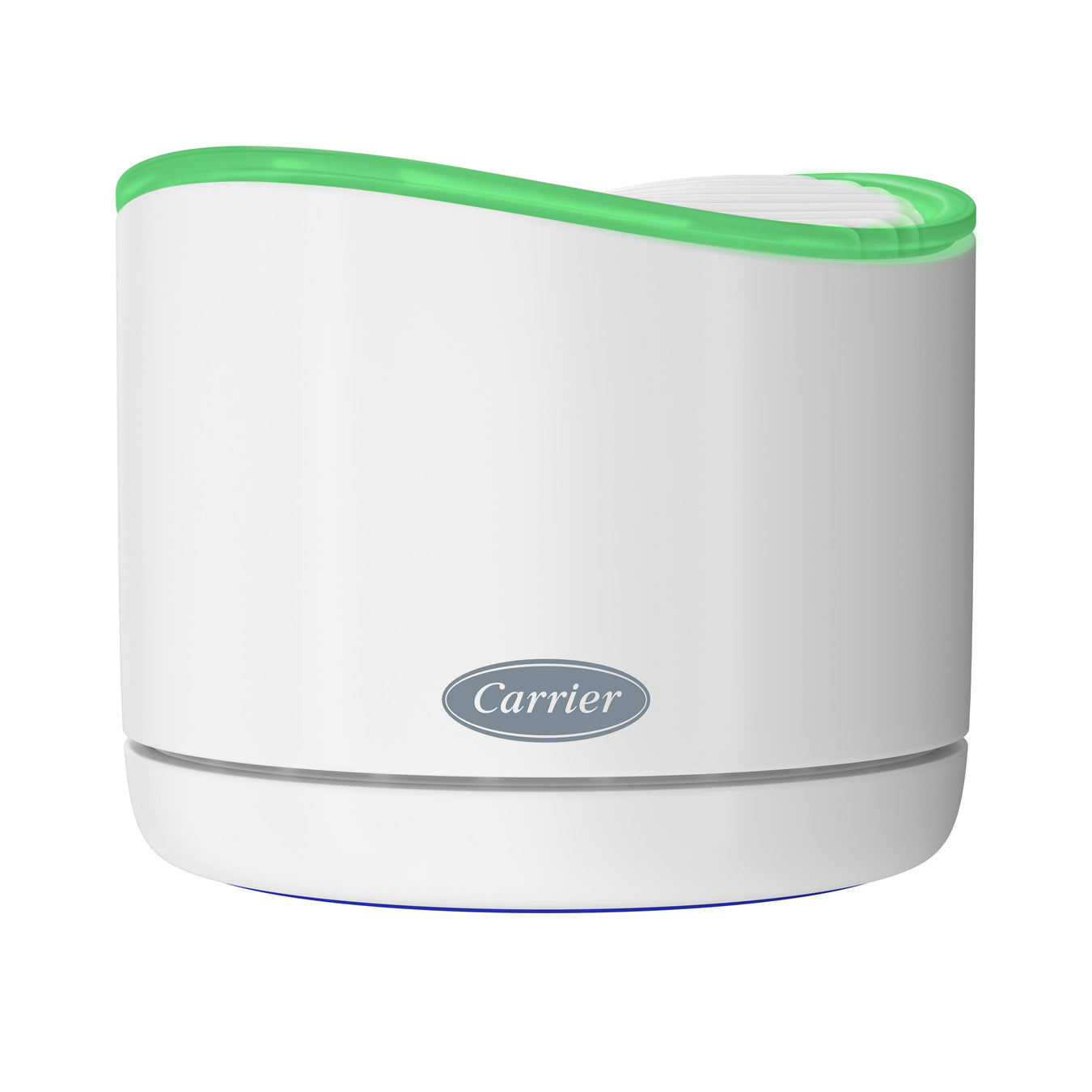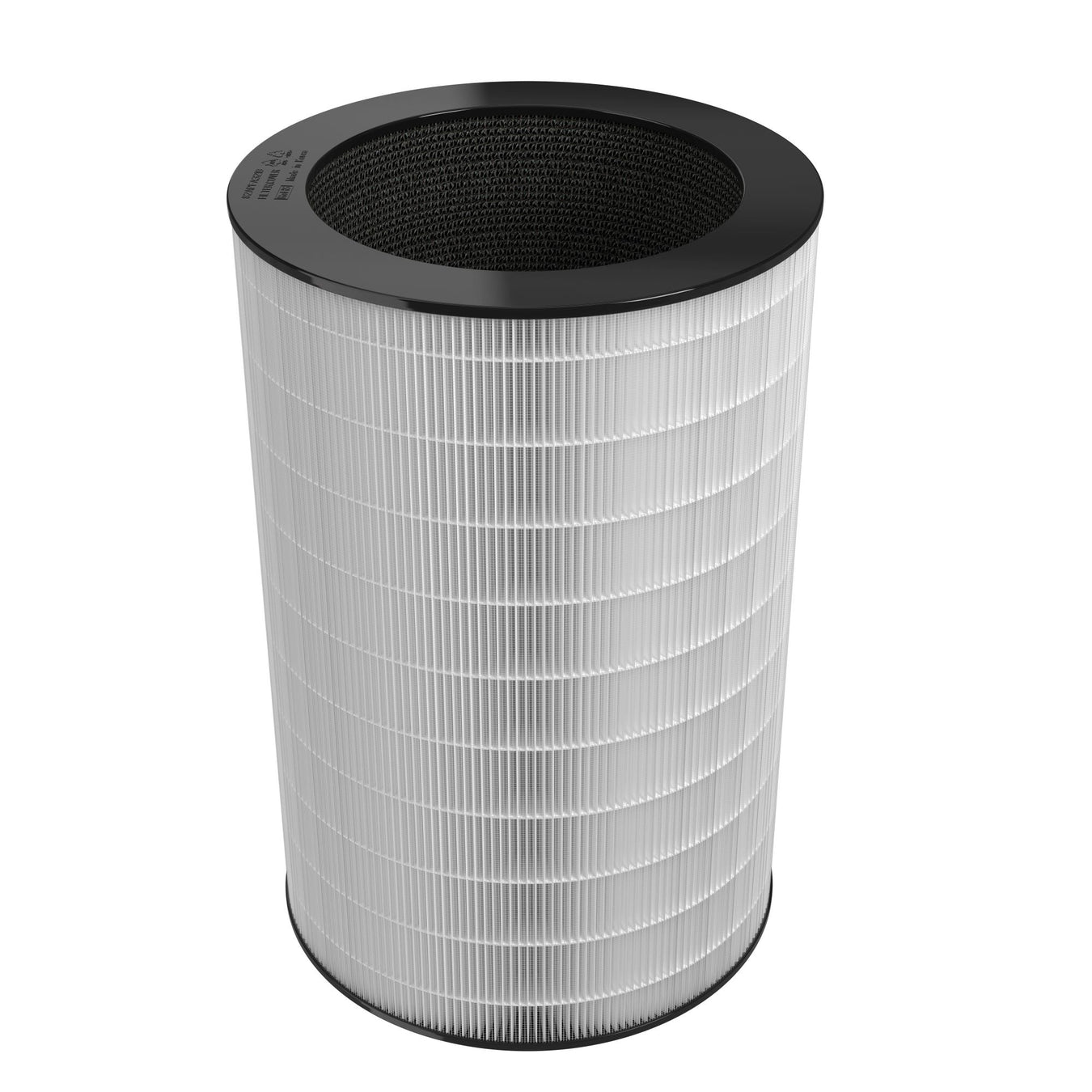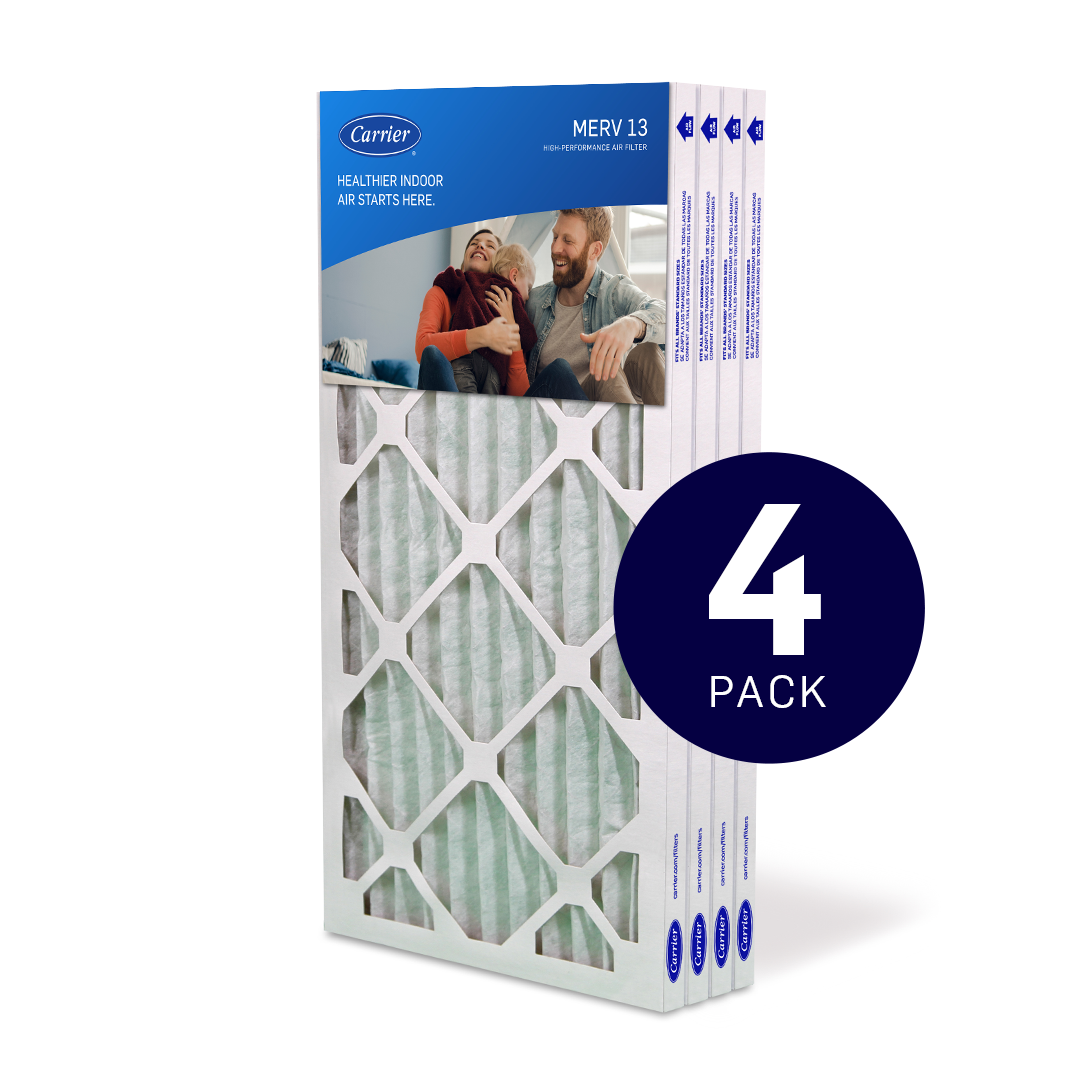
Air Purifier vs Humidifier
What is the difference between an air purifier and a humidifier? Quite a bit, actually, as we’ll discuss in this piece dedicated to examining the differences in choosing an air purifier vs. humidifier for your home. In short, the main difference is that humidifiers add moisture to the air in your home, while air purifiers do not add a warm mist or cool mist of water vapor to the air. Rather, they filter the air by trapping impurities in a filter such as dust, pollen, small particulate matter (PM2.5) and other particles that can be harmful to your health.
Difference between Air Purifier and Humidifier
Studies have shown that using an air purifier in your home can help improve at least one measure or marker of improved health outcome.1 It should be noted that an air purifier isn’t a silver bullet but can go a long way to improve your indoor air quality along a multi-pronged approach that includes both reducing the source of pollutants and improved ventilation.2
Humidifiers, on the other hand, do not work to filter impurities from the air. In fact, as you’ll see in some cases, humidifiers can be overused to the point that they create environments that are friendly to mold and other microbes, which generally should be avoided by everyone, but especially the very young, very old and other sensitive groups.

Air Purifier vs Humidifier vs Dehumidifier
The table below will give you an idea of the utility and benefits of air purifiers and dehumidifiers as well as standard humidifiers.
| Product | How it's used | Benefits |
| Air Purifier | To filter the air of irritants and Impurities | Can help reduce particles known to cause seasonal allergies & asthma and small particles (PM 2.5) which poses the greatest risk to health |
| Humidifier | To add moisture to the air | Very helpful in dry climates without much moisture |
| Dehumidifier | To remove moisture from the air | Combats humidity in overly moisture-prone regions |
Choosing between air purifier vs humidifier vs dehumidifier involves understanding the unique benefits each device offers in improving indoor air quality and creating a comfortable living environment.
- An air purifier is designed to filter contaminants and allergens from the air, promoting cleaner and healthier breathing.
- On the other hand, a humidifier adds moisture to the air, alleviating issues related to dryness, such as dry skin and irritated respiratory passages.
- Meanwhile, a dehumidifier works to reduce excess humidity, preventing the growth of mold, and addressing problems associated with dampness.
The decision between these three appliances depends on the specific needs of your space and the prevailing environmental conditions. In some cases, a combination of these devices might be the most effective approach, ensuring a balanced and optimal indoor atmosphere for both health and comfort.
Do Humidifiers Also Purify Air?
Most humidifiers contain a filter which will only help filter large particles. Therefore, they typically do little to clean the air of small particles and irritants. Humidifiers are used to add moisture to the air via a cool mist, which makes them a good option for those who live in dry, arid climates such as those found in large parts of the Western United States. Again, humidifiers essentially serve one purpose: to add moisture to the air.
Is an Air Purifier Better Than a Dehumidifier?
Both air purifiers and dehumidifiers are helpful tools in many households, but they serve very different purposes. Air purifiers tend to be more beneficial for people who are interested in promoting cleaner, healthier indoor air because they can help filter airborne particles like dust, pet dander, pollen and other impurities found in the air. Dehumidifiers can remove moisture from homes found in overly-humid climates, but do little to clean the air. For that purpose, you’ll want to use air purifiers, particularly ones with HEPA filters.
Shop Carrier air purifier products today.
Benefits of Air Purifiers, Humidifiers, and Dehumidifiers
Air Purifier Benefits
Air purifiers can deliver a host of benefits for anyone interested in cleaner, healthier indoor air. Some of them include:
- Help reduce pollen, dust and tobacco smoke circulating in your indoor air
- Reduce harmful fine inhalable particles (PM 2.5)
- Help filter odors and VOCs (air purifiers with an activated carbon filter
- Improved indoor air quality in the home
When choosing an air purifier, it’s very important to choose one that uses a HEPA filter (High Efficiency Particulate Air) and ideally also an activated carbon filter.
Humidifier Benefits
Humidifiers come with their own potential benefits, separate from those found in air purifiers. They include:
- Help relieve the physical discomforts of dry nose, throat, lips, and skin5
- Improved home comfort in arid climates
- Reduced dry skin for those living in dry climates
Dehumidifier Benefits
By removing moisture from the air, dehumidifiers also bring potential benefits, particularly to those who live in very moist climates, such as:
- Reduce environments that encourage mold growth and cozy homes for dust mites
- Improved home comfort in humid climates
Air Purifier vs Humidifier for Different Situations
Air purifiers and humidifiers can be very beneficial for a variety of people, as long as they’re used properly. Sometimes they can be used together for added benefits, while other times they are best used separately. We’ll take a closer look at specific scenarios in the sections below.
Air Purifier vs Humidifier for Baby Room
When setting up your baby’s room, there’s a lot to consider, but we recommend you factor in both the quality and humidity levels of the air in baby’s living space. To solve the whole air purifier vs humidifier for baby dilemma, consider this: infants and toddlers can benefit from a combination of air purifiers and humidifiers to help keep the air at optimal humidity while filtering dust, pollen and other impurities. This advice does come with a word of caution: while it’s perfectly fine to run an air purifier 24/7, you should take care to not run a humidifier constantly. Doing so can cause moisture problems as well as the buildup of bacteria and mold spores. That’s something most adoring new parents want to avoid when it comes to their baby’s immune system!

Air Purifier vs Humidifier for Asthma
For asthma sufferers living in dry climates (or anyone in dry regions, for that matter), adding a humidifier to your home can may ease breathing for those who have asthma, especially during a respiratory infection such as a cold – just ensure you are properly maintaining the humidifier so that it doesn’t contribute to the problem. 5 Air purifiers, on the other hand, can help reduce airborne particles such as pet dander, dust, pollen and more.
What is Better for Allergies - Humidifier or Air Purifier?
Humidifiers and air purifiers serve distinct yet complementary roles in creating a healthier indoor environment, particularly for individuals grappling with allergies and allergy symptoms. While high-quality air purifiers and effective HVAC filters excel at filtering a wide array of airborne allergens, such as dust, pollen, and pet dander, they may not address the issue of dry air. In regions with low humidity levels, especially during the winter months, humidifiers become valuable allies. These devices add moisture to the air, preventing the discomfort caused by dry skin, irritated nasal passages, and other respiratory issues exacerbated by a lack of humidity.
Therefore, the choice between a humidifier and an air purifier depends on the specific needs of the individual and the prevailing environmental conditions. In some cases, a combination of both technologies may be the optimal solution to create an allergen-free and comfortable living space.
Air Purifier vs Humidifier for a Cold
When you’re under the weather with the common cold or flu, air purifiers and humidifiers will not cure what ails you, but they can make the experience a lot more comfortable. By soothing your nasal passages and removing impurities from the air, your time spent in bed or on the couch may be improved because colds can easily dry out your sinuses and throat.
Frequently Asked Questions
Is it Better to Have a Humidifier or Air Purifier?
The choice between a humidifier and an air purifier depends on your specific needs. If you are dealing with dry air and its associated problems like dry skin and irritated respiratory passages, a humidifier can be beneficial. On the other hand, if your concern is filtering airborne allergens and pollutants, an air purifier is more suitable for improving indoor air quality.
Is an Air Purifier Better Than a Humidifier in Winter?
Choosing between an air purifier and a humidifier in winter depends on the specific issues you're aiming to address. If the primary concern is maintaining indoor air quality by filtering airborne pollutants and allergens, an air purifier is likely the better choice. Conversely, if dry air is the main issue leading to discomfort, a humidifier becomes more suitable for adding moisture to the air and improving overall comfort during the winter season.
Is it Good to Sleep With an Air Purifier and Humidifier?
Sleeping with both an air purifier and a humidifier can offer comprehensive benefits for a comfortable and healthy sleep environment. An air purifier helps filter airborne allergens and pollutants, promoting cleaner air for better respiratory health during sleep. Simultaneously, a humidifier can add moisture to the air, preventing issues associated with dryness such as dry skin and nasal irritation. Together, these devices create an optimal sleep environment.
Do Air Purifier Make the Air Dry?
While some air purifiers may contribute to a slight reduction in humidity, the overall impact on air dryness is typically minimal. High-quality air purifiers are designed to filter out airborne particles without significantly altering the moisture content of the air.
For more information, please read: Do I need an air purifier? or air purifier vs air scrubber
Shop Carrier air purifier products today.
- https://www.epa.gov/report-environment/indoor-air-quality
- https://www.epa.gov/indoor-air-quality-iaq/improving-indoor-air-quality
- https://www.epa.gov/pm-pollution/particulate-matter-pm-basics
- https://www.epa.gov/indoor-air-quality-iaq/ozone-generators-are-sold-air-cleaners https://www.epa.gov/sites/default/files/2014-08/documents/humidifier_factsheet.pdf
- https://www.epa.gov/sites/default/files/2014-08/documents/humidifier_factsheet.pdf

